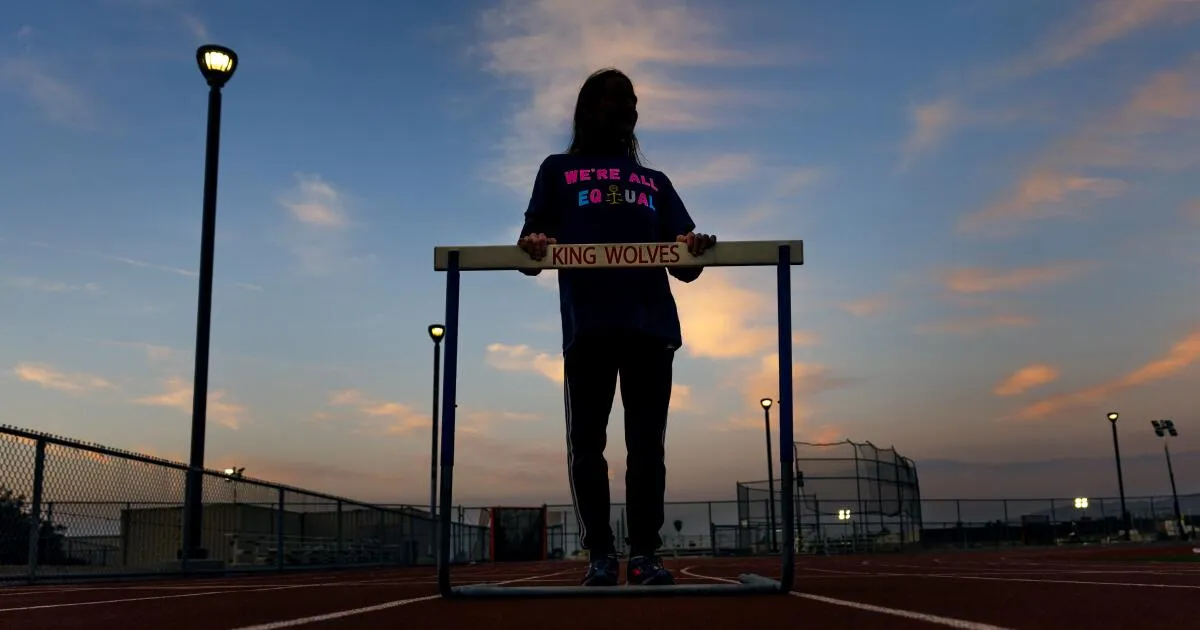
California Governor Gavin Newsom, a long-time advocate for LGBTQ+ rights, recently stirred debate by declaring the participation of transgender athletes in women's sports as “deeply unfair.” This statement emerged during the launch of his new podcast, “This is Gavin Newsom,” where he engaged in a 70-minute dialogue with conservative commentator Charlie Kirk. Newsom’s remarks have drawn significant attention, particularly as they diverge from the prevailing views within his party and provide ammunition for Republican narratives in the ongoing presidential election.
In the inaugural episode of his podcast, Newsom primarily listened to Kirk analyze the vulnerabilities within the Democratic Party that have allowed Republicans to gain traction in recent elections. While discussing the topic of transgender athletes, Kirk argued that it is unfair for individuals assigned male at birth to compete against women. Newsom responded by affirming Kirk’s stance, stating, “The issue of fairness is completely legit, so I completely align with you, and we’ve got to own that.” This alignment with Kirk’s views marks a notable departure from Newsom’s traditionally progressive stance.
Political experts speculate that Newsom's comments may signal a strategic shift as he positions himself for a potential presidential campaign in 2028. Gar Culbert, a political science professor at Cal State Los Angeles, noted that Newsom seems to be “testing the waters” by distancing himself from his liberal California image. This approach may enhance his appeal to a broader national audience as he seeks to amplify his political viability beyond state lines.
Newsom’s remarks have drawn swift backlash from fellow Democrats, who view his agreement with Kirk as a betrayal of the LGBTQ+ community, which is already facing significant challenges. State Senator Scott Wiener expressed disappointment, stating, “It’s devastating and depressing, particularly coming from a governor who has been such a courageous ally of our community.” Wiener highlighted that there are fewer than ten transgender athletes competing in NCAA women’s sports, arguing that the issue has been exaggerated by Republican rhetoric.
During the podcast, Kirk cited specific cases, such as that of California transgender high school athlete AB Hernandez, to underscore the controversy surrounding this topic. Newsom acknowledged the challenges faced by transgender individuals, including higher rates of suicide and mental health struggles, but maintained that the issue of fairness in sports deserves attention. He stated, “There’s also a humility and a grace that these poor people are more likely to commit suicide, have anxiety and depression.”
Other Democratic leaders have expressed their frustration over Newsom’s stance. Assemblymember Christopher M. Ward criticized the focus on transgender athletes, stating, “If this is what we want to spend 90% of our time focusing on, we are losing sight of why people actually send us to Sacramento to work on California’s biggest pressing problems.” This sentiment reflects a growing concern among Democrats about the party's messaging and priorities in the face of Republican opposition.
Despite this recent controversy, Newsom has a history of championing LGBTQ+ rights. He gained national recognition in 2004 for officiating same-sex marriages in San Francisco and signed legislation last year that protects the rights of transgender students in schools. However, he has also faced criticism for vetoing bills that would have strengthened protections for transgender youth, indicating a complex relationship with LGBTQ+ advocacy.
The discussion surrounding transgender athletes in women’s sports is likely to remain a contentious topic as the political landscape evolves. As Newsom navigates his role within the Democratic Party and the broader national discourse, his recent comments may reflect a strategic pivot aimed at positioning himself for future electoral success while grappling with the implications for LGBTQ+ rights.